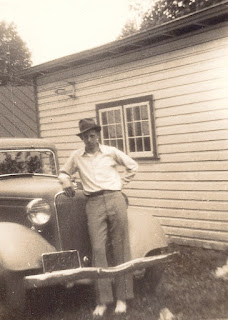“Very often, small communities change subtly over time. For
example, a rural area like Lake Katrine in the Town of Ulster was once dotted
with dairy farms which stretched for miles along the sandy banks of the Esopus
Creek. At some point in the early 1950’s, the Town Ulster welcomed the
construction of the IBM center and within ten or fifteen years the neighborhood
changed to include strip malls, a drive-in theatre and four lane divided
highways.
Occasionally, a small town experiences a heralding event
that creates a quick shift in the social and economic fabric of it. In 1968, Woodstock was a rural township, a
conglomeration of seven unique hamlets each content with the Town’s overall
dual image as a bed room community for IBM and Rotron as well as a mature
colony of the arts. Locals will fondly
recall that during this time period, from Labor Day to the following Memorial
Day, one could roll a bowling ball down the center of Mill Hill Road and never
hit a person or a car. In spite of
occasional complaints, most year-round residents were able to adjust to the
seasonal up tick of activity that accommodated the music and art population.
Managing the town government was more or less a part time
endeavor; the Town Clerks’ office was on Tinker Street in the Town Hall
building, the Supervisor worked out of the same office or from his home. The
constabulary consisted of four or five local men who worked a day shift and
half an evening shift during the summer season. The Mowers of Maple Lane, now
residing in West Hurley, were finding their way in life. Each one adjusting to
the untimely loss of their husband and father, Al Mower, as a result of
injuries sustained in a motor vehicle accident while on vacation in 1966.”
Excerpt from American Tapestry, the Mowers of Maple Lane,
Janine Fallon Mower- Anam Cara Press
Woodstock NY, 2007
Available from the author email woodstockfleamarket@hvc.rr.com





